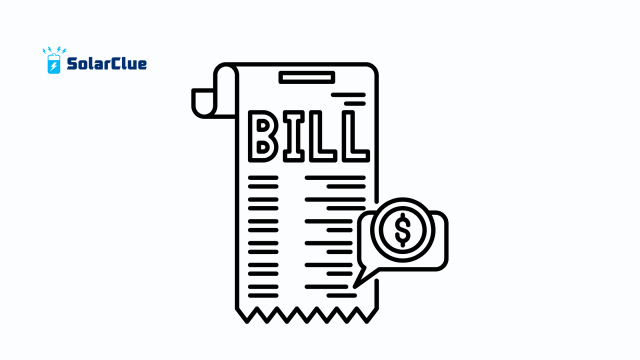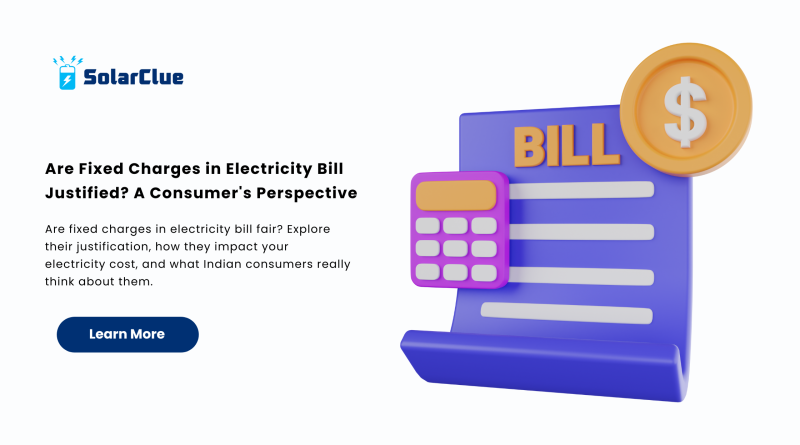Are Fixed Charges in Electricity Bill Justified? A Consumer’s Perspective
Imagine not switching on a single light for an entire month and still receiving a bill. Sounds unfair, right? Welcome to the reality of fixed charges in electricity bill—a fee every consumer pays, whether they use power or not. But why do these charges exist, and are they really justified? This blog dives deep into the reasoning behind fixed charges, how they affect real consumers, and whether there’s a better way to handle electricity billing in India. Let’s break it down together.
Table of Contents
- 1 What Exactly Are Fixed Charges?
- 2 Why Consumers Feel Fixed Charges Are Unfair
- 3 What Utility Companies Say
- 4 Real Stories: How Fixed Charges Affect Households
- 5 What Can Be Done? Alternatives to Fixed Charges
- 6 What Can You Do as a Consumer?
- 7 Government’s Role in Ensuring Fair Billing
- 8 FAQs on Fixed Charges in Electricity Bill
- 9 Final Thoughts: Are Fixed Charges Justified?
What Exactly Are Fixed Charges?
Fixed charges in electricity bill are flat fees applied to your bill every month, independent of how much electricity you consume. They’re typically based on your sanctioned load and remain unchanged unless you officially request a revision. Unlike energy charges (which vary based on units consumed), fixed charges remain the same, even during power outages or zero usage periods.
Why Consumers Feel Fixed Charges Are Unfair
Many consumers argue that fixed charges are unfair for several reasons: You pay even when no electricity is used. They increase the electricity bill significantly for low-usage households. Many aren’t aware of how they are calculated. Lack of transparency from utility companies. In short, many feel they’re paying for a service they didn’t use.
What Utility Companies Say
Electricity providers defend fixed charges in electricity bill by stating that they: Ensure grid stability and service availability. Cover the cost of infrastructure and maintenance. Support administrative services like billing and customer support. Their view is that you’re not just paying for electricity—you’re paying to have the service ready for you 24/7.
Real Stories: How Fixed Charges Affect Households
1. The Elderly Couple
A retired couple in Bengaluru rarely use more than 20 units per month. Yet, they consistently receive a ₹300+ bill—mostly due to fixed charges.
2. Seasonal Tenants
In cities like Goa or Shimla, seasonal renters use electricity for just 4–5 months a year. Still, they pay fixed charges year-round, even when the house is locked.
3. Small Business Owners
Shopkeepers with low-consumption equipment face bills that seem disproportionately high, especially during lean sales months. These stories aren’t rare—they represent a widespread frustration among consumers across India.
What Can Be Done? Alternatives to Fixed Charges
While completely removing fixed charges may not be feasible, here are possible reforms:
1. Slab-Based Fixed Charges
Apply fixed charges only after a certain minimum consumption threshold.
2. Pro-Rata Fixed Charges
Charge based on the number of days the connection was active during a billing cycle.
3. Seasonal Plans for Holiday Homes
Offer seasonal billing options for non-permanent residences.
4. Waiver for Low-Income Households
Create fixed charge exemptions for verified low-income users or BPL cardholders. These alternatives could make electricity bills more just and balanced.

What Can You Do as a Consumer?
✅ Check Your Sanctioned Load
Sometimes, your fixed charges in electricity bill are high because your sanctioned load is too much. You can request a reduction.
✅ Understand the Tariff Policy
Visit your state’s electricity board website and study your tariff category.
✅ Switch to Solar
By using solar power, you can at least cut down energy charges, making the total bill more bearable. Even if fixed charges remain, your overall cost reduces drastically.
Government’s Role in Ensuring Fair Billing
The government and regulatory bodies like CERC (Central Electricity Regulatory Commission) can: Mandate more transparency in billing. Allow consumers to opt for flexible tariff plans. Penalize distribution companies that fail to explain fixed charges properly. Public awareness and active representation can push for policy changes. Your voice matters!
FAQs on Fixed Charges in Electricity Bill
Q1. Why do I get a bill even when I haven’t used electricity?Because of fixed charges, which apply even if your usage is zero—they cover grid connectivity and service.
Q2. Can I reduce fixed charges?Yes, by applying to reduce your sanctioned load with your electricity provider.
Q3. Are fixed charges different in each state?
Yes. Fixed charges vary based on your state’s tariff structure, consumer category, and load.
Q4. Do solar users also pay fixed charges?
Yes. Even with solar panels, fixed charges in electricity bill still apply if you’re grid-connected.
Q5. Why don’t they include fixed costs in the per-unit rate?
Doing so could unfairly burden high-usage users. Keeping it separate allows better billing transparency.
Final Thoughts: Are Fixed Charges Justified?
While utility companies have a reason to charge fixed costs, the current structure often feels disconnected from real usage patterns. With rising electricity costs and more awareness among consumers, it’s time to rethink the fairness of such charges. Transparency, options for seasonal and low-usage consumers, and clearer billing practices can make a big difference.
Curious how you can lower your electricity cost with smart energy options? 🌞 Start your solar journey today by exploring trusted solutions at SolarClue.com or dive deeper into consumer-friendly guides on blog.solarclue.com. Empower your wallet—and the planet.


